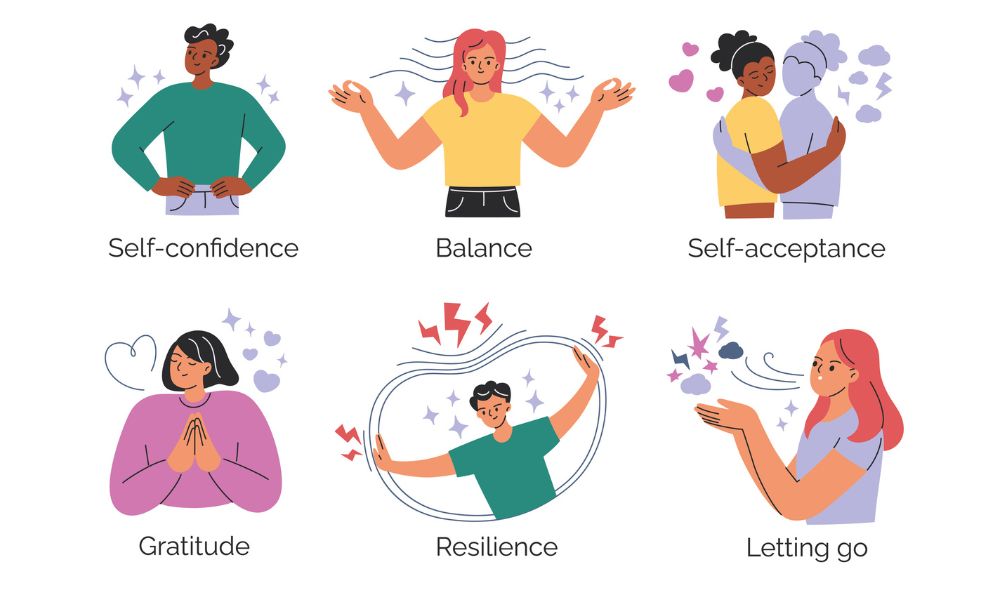Managing anger can be a challenge for many of us. Exercise provides a powerful way to help us channel our emotions and reduce feelings of frustration and irritation. By incorporating physical activity into our daily routines, we can find effective strategies to keep anger at bay and improve our overall mood.

Engaging in regular exercise doesn’t just benefit our physical health; it also plays a crucial role in managing stress and emotional well-being. Different types of activities, from brisk walking to high-intensity workouts, can serve as healthy outlets for our anger. As we explore how exercise impacts our emotions, we can discover methods that work best for each of us.
In this article, we will look at various ways to integrate exercise into our lives, helping us stay calm and focused. By adopting these practices, we can create a healthier approach to dealing with anger.
Key Takeaways
- Exercise is a practical tool for managing anger and reducing stress.
- Regular activity offers both physical and emotional benefits for our well-being.
- Creating a routine that includes exercise can improve our anger management skills.
Understanding Anger

Anger is a natural emotion that we all experience at times. Understanding its psychology and the physical impact it has on our bodies can help us manage it more effectively.
The Psychology Behind Anger
Anger often arises as a response to perceived threats or injustices. It acts as a defence mechanism, helping us confront problems. When we feel angry, our brain releases chemicals like adrenaline, which prepares us for “fight or flight” responses.
This emotional response can result from various situations, including frustration, betrayal, or feeling powerless. Anger can distort our thinking, making it hard to view situations clearly. It's crucial we recognise this pattern to manage our reactions.
Learning to identify triggers can help us reframe our thoughts and emotional responses. By understanding what leads to our anger, we can react more calmly and thoughtfully in future situations.
Physical Impact of Anger on the Body
When we experience anger, our bodies undergo significant changes. Our heart rate increases, blood pressure rises, and muscles tense up. This physical response prepares us for action, but if unchecked, it can lead to health issues.
Prolonged anger can contribute to problems like headaches, digestion issues, and increased risk of heart disease. Our immune system may also weaken, making it harder for our bodies to fight off illness.
Understanding these physical effects encourages us to manage anger effectively. Instead of letting anger control us, we can use techniques like exercise and deep breathing to reduce its impact on our bodies. Mobilising our physical energy can help alleviate stress and prevent negative health effects.
The Role of Exercise in Stress Management

Exercise plays a key role in managing stress effectively. When we engage in physical activity, our bodies release endorphins. These are natural chemicals that help improve our mood and reduce feelings of stress.
Physical activity can lower levels of stress hormones like adrenaline and cortisol. By doing this, we create a calmer mental state. Regular exercise can also boost our self-esteem and confidence, making it easier to cope with life's challenges.
Benefits of Exercise for Stress Management:
- Improved Mood: Exercise helps create a sense of well-being.
- Better Sleep: Physical activity can lead to more restful sleep.
- Increased Energy: Regular movement can make us feel more energetic throughout the day.
Activities as Simple as walking, cycling, or swimming can make a significant difference. When we find a routine we enjoy, we are more likely to stick with it. This consistency will further aid in managing our stress levels.
In times of high stress, taking a brisk walk or participating in a workout can help clear our minds. We can use exercise as a tool to help navigate through difficult emotions and reduce our anger. By prioritising physical activity, we empower ourselves to handle stress better.
Types of Exercise to Combat Anger

Engaging in various types of exercise can significantly help us manage anger. Each category has unique benefits that can lower stress and improve our mood. Let’s explore how different exercises can aid in anger management.
Aerobic Activities
Aerobic activities are excellent for reducing tension and enhancing our mood. Exercises like running, cycling, or swimming increase our heart rate, which helps release endorphins—the body's natural mood lifters.
A brisk walk can also be effective if we feel anger rising. Engaging in aerobic activities regularly can foster better emotional resilience and improve our ability to cope with stress. For example, a 30-minute jog can clear our minds and decrease feelings of irritability.
Additionally, team sports like football or basketball allow us to channel our anger positively. This social interaction can foster connections that further help us handle our emotions.
Strength Training
Strength training is another effective way to manage anger. Lifting weights or doing bodyweight exercises can provide a physical outlet for our frustration. As we concentrate on our movements, we divert attention from anger triggers.
Regular strength training has been linked to improved mental health. It can boost self-esteem and body image, leading to a more positive outlook.
Moreover, exercises like powerlifting or resistance training often involve structured routines, which can give us a sense of control. This feeling of control can be especially important when dealing with anger.
Mind-Body Exercises
Mind-body exercises focus on connecting our physical and mental well-being. Practices like yoga and tai chi enable us to calm our minds while we move our bodies.
These activities help us become more aware of our emotions and reactions. Through techniques such as deep breathing and mindfulness, we learn to respond to anger more effectively.
Yoga improves flexibility and strength, while also promoting relaxation. This dual benefit makes it ideal for managing stress and anger. In classes or guided sessions, we can find community and shared experiences that enhance our journey toward emotional balance.
Embracing these types of exercise can empower us to manage our anger in constructive ways.
Developing a Routine

Creating a consistent exercise routine can play a significant role in managing anger. By focusing on specific goals and maintaining regularity, we can effectively harness the power of exercise to improve our emotional well-being.
Setting Realistic Goals
To start, we need to establish achievable goals for our fitness routine. It’s important to consider our current fitness level and the amount of time we can commit each week.
Goals could include:
- Frequency: Aim for at least three to four exercise sessions per week.
- Duration: Start with 20 to 30 minutes and gradually increase as we feel more comfortable.
- Type: Choose activities we enjoy, such as walking, cycling, or swimming.
Setting goals that are clear and measurable helps us stay motivated. We can track our progress to maintain a sense of accomplishment, which can significantly help in managing anger.
Consistency and Timing
Incorporating regular exercise into our daily lives is crucial. We should aim to stick to a schedule that works best for us, whether it’s morning, midday, or evening. Finding the right time can make it easier to maintain our routine.
Consistency is key. By exercising around the same time each day, we create a habit.
We could:
- Set reminders on our phones.
- Join a class for accountability.
- Involve friends to make it more enjoyable.
Establishing a routine helps us connect exercise with positive emotions, allowing us to release pent-up anger and stress effectively.
Biological Effects of Exercise on Anger
Engaging in regular exercise brings about significant biological changes that can help us manage anger effectively. These changes primarily involve the release of endorphins and a reduction in stress hormones. Both of these factors play a crucial role in how we experience and control our emotions.
Endorphin Release
When we exercise, our bodies produce endorphins, which are often referred to as "feel-good" hormones. These chemicals are natural painkillers and mood lifters. They help create a sense of euphoria, which can be beneficial when facing anger or frustration.
Endorphins work by binding to receptors in our brain, blocking pain signals and reducing the perception of negativity. This biochemical process can enhance our emotional well-being, making it easier to stay calm in stressful situations. Regular physical activity helps maintain steady endorphin levels, allowing us to feel more at ease over time.
Reduction of Stress Hormones
Exercise also leads to a reduction in stress hormones, such as cortisol and adrenaline. High levels of these hormones can trigger feelings of anger, anxiety, and tension. By engaging in physical activity, we can actively lower these hormone levels.
During exercise, our body diverts energy away from stress responses and towards muscle and cardiovascular function. This shift not only helps us feel better physically but also promotes a sense of mental clarity. As we continue to exercise, we develop a more resilient response to stressors, allowing us to manage anger more effectively.
Emotional Benefits of Regular Exercise
Regular exercise brings several emotional advantages that help us manage our anger better. Here are some key benefits:
-
Mood Improvement: Engaging in physical activity can boost our mood. It releases endorphins, which are chemicals in our brain that make us feel happier.
-
Stress Reduction: Exercise helps lower stress levels. When we work out, our body reduces the production of stress hormones like cortisol.
-
Enhanced Sleep: Regular physical activity often leads to better sleep quality. Improved sleep can help us feel more balanced and less irritable.
-
Increased Confidence: Achieving fitness goals can build our self-esteem. Feeling strong and fit helps us feel better about ourselves.
-
Social Connections: Group activities, like team sports or fitness classes, allow us to connect with others. This social interaction can reduce feelings of isolation and promote a sense of belonging.
We can also find that exercise provides a healthy outlet for our feelings. When we are angry or stressed, getting some fresh air or going for a brisk walk can clear our minds.
By choosing to incorporate regular exercise into our routines, we can experience these emotional benefits and handle anger more effectively.
Strategies for Incorporating Exercise into Your Lifestyle
We can enhance our anger management by finding ways to include exercise in our daily routines. Simple adjustments can lead to significant benefits.
Identifying Opportunities for Physical Activity
To start, we should look for small opportunities to move throughout the day. Simple actions like taking the stairs instead of the lift can make a difference.
We can also schedule short walking breaks during work or study sessions. Even a five-minute walk can help clear our minds and reduce feelings of anger.
Engaging in hobbies that involve physical activity, like gardening or dancing, can also help us stay active. We might even consider joining a local sports club for more structured exercise while meeting new people.
Balancing Exercise with Other Activities
Finding the right balance is key to maintaining a consistent exercise routine. We need to set realistic goals for how often we want to work out.
Creating a weekly schedule can help us prioritise exercise while balancing other commitments. For example, we might dedicate three evenings a week to physical activity.
It’s important to choose activities we enjoy. If we like what we’re doing, we’re more likely to stick with it.
Combining exercise with social events, like group workouts or walking with friends, can make physical activity more enjoyable. We can ensure that exercise becomes a fulfilling part of our lives, helping us manage our emotions effectively.
Monitoring Progress and Adjusting Your Approach
As we manage our anger through exercise, it’s important to keep track of our workouts and how we feel. By closely monitoring our progress, we can determine what works best for us. We can then adjust our approach to meet our needs more effectively.
Tracking Workouts and Emotions
To effectively manage anger, we should maintain a log of our exercise routines. Keeping track of our workouts helps us see patterns in our progress. We can note the type of activities we engaged in, the duration, and our intensity levels.
Additionally, it's crucial to record our emotions before and after these sessions. This gives us insight into how exercise impacts our mood. We can create a simple table for clarity:
| Date | Activity | Duration | Mood Before | Mood After |
|---|---|---|---|---|
| 03/03/2025 | Running | 30 mins | Angry | Calm |
| 04/03/2025 | Yoga | 45 mins | Frustrated | Relaxed |
Using this method, we can easily identify which exercises help us manage anger the best.
Adapting to Changing Needs and Circumstances
Our needs may change over time due to stress, life events, or physical condition. Thus, we should remain flexible in our approach to exercise.
If we notice that a particular activity is no longer effective, we can try something new. For example, if running isn't helping as much, we might explore yoga or joining a sports team.
Listening to our bodies is key. If certain workouts increase frustration instead of alleviating it, we should adjust accordingly. Regular reassessment of our routines ensures that we continue to find ways to cope effectively with anger.
Frequently Asked Questions
Managing anger can be challenging, but we can use specific strategies to handle it effectively. This section addresses common inquiries about practical techniques, recommended exercises, and ways to support ourselves and others.
What strategies can be employed to control anger in the moment?
We can utilise several strategies to control anger when it arises. Counting to ten gives us a moment to pause and think. Taking deep breaths also helps calm our mind and body. Engaging in physical activities, like going for a walk, can release tension and shift our focus.
Which exercises are recommended for managing anger in adults?
Several exercises are beneficial for adults dealing with anger. Aerobic activities, such as running or cycling, are effective in releasing pent-up energy. Yoga and tai chi promote relaxation and mindfulness, providing tools to help manage our emotions.
Can physical activity serve as an effective method for releasing anger?
Yes, physical activity is a well-known method for releasing anger. When we exercise, our body releases endorphins, which improve our mood. Engaging in sports or exercise routines allows us to express our feelings positively.
What are the therapeutic techniques that help with anger management?
Therapeutic techniques for anger management include cognitive-behavioural therapy and mindfulness practices. These approaches help us identify triggers and change our thought patterns. Group therapy can also provide support and shared experiences for managing anger.
How can controlled breathing assist in reducing feelings of anger?
Controlled breathing is an effective technique for reducing anger. When we focus on our breath, it calms the nervous system. Taking slow, deep breaths can help us regain control when emotions start to rise.
In what ways can you support someone struggling with anger management issues?
To support someone with anger management issues, we should listen without judgment. Encouraging them to express their feelings can provide relief. Suggesting professional help or coping strategies, such as exercise, can also be beneficial in their journey.





















